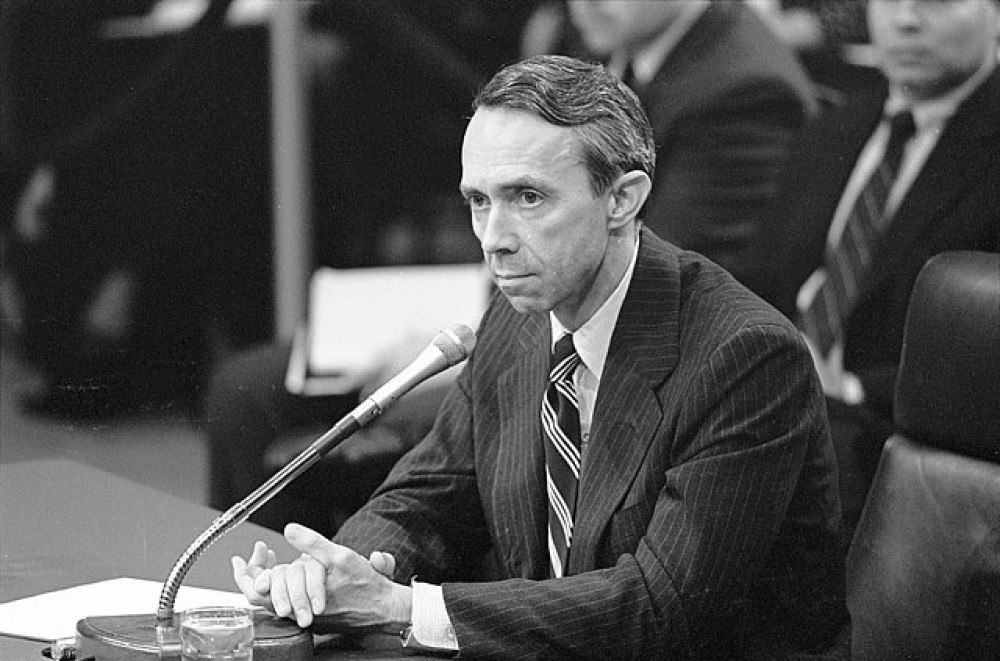
From 1990 to 2009, David Souter was an Associate Justice of the U.S. Supreme Court, where he was especially known for championing the protection of First Amendment values. Nominated to the Court by Republican President George H. W. Bush, Justice Souter surprised everyone when he started to move towards the "ideological center," before eventually voting reliably with the Court's liberal members. For example, Souter reaffirmed Roe v. Wade and also voted against prayer in schools. Born in Massachusetts, Souter attended some of the most prestigious universities in the world, knowing from an early age he wanted to pursue law. In 1978, he was appointed to the bench for the first time. In just over a decade, he served on the Superior Court of New Hampshire, the New Hampshire Supreme Court, and the United States Court of Appeals for the First Circuit. When Justice Souter announced his decision to leave the country's highest court, President Obama said he had represented what it means to be a “fair-minded and independent judge.”
For his undergraduate degree Souter attended Harvard University. There, he majored in philosophy and worked for the Phillips Brooks House Association, a nonprofit organization that facilities social change by emphasizing direct service and social action in communities in need. As an undergraduate, Souter was also a member of the Hasty Pudding Club and was later named to the Phi Beta Kappa honor society. Keenly interested in law, he wrote his senior thesis on the judicial philosophy of Oliver Wendell Holmes Jr. In 1961, Souter graduated from Harvard magna cum laude with a Bachelor of Arts in Philosophy. Selected as a Rhodes Scholar, he went on to earn his master's degree from Oxford University before returning to Cambridge, Massachusetts to continue his legal studies. In 1966, he graduated from Harvard Law School.
After a long career of public service, Souter has been putting the extra free time of retirement to good use – namely returning to his university roots. In 2009, the freshly retired Justice spoke at Harvard with Professor Noah Feldman (who in 1998 served as Souter's law clerk), giving the audience members an insider's perspective into what it's like to serve on the country's top Court. This appearance was quickly followed in 2010 when Souter was selected to be the main speaker at Harvard University’s Commencement Exercises. While there, he also received an honorary Doctor of Laws, making him one of only a few people in the world who have three degrees from Harvard. During his speech to the graduates, Souter used his platform to outline an approach to constitutional interpretation that both defended "living constitutionalism” and “judicial activism," with the latter being a game both liberals and conservatives can play.
